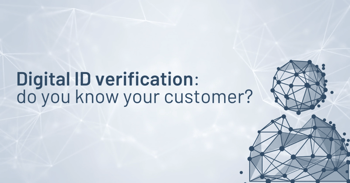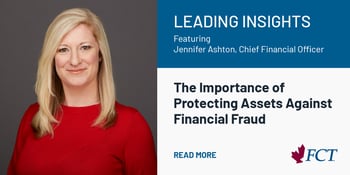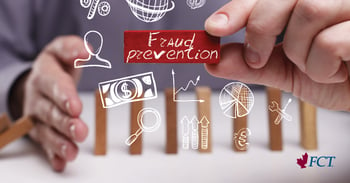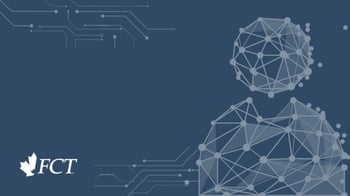
Which of these do you think Canadians worry about the most: break-ins, vehicle theft, fraud scams or plane crashes? If you guessed fraud scams, you’re right! Yet despite this fact, ninety-six percent of Canadians were unable to detect fraud when tested. How do you compare? Take this test and find out.
Our tools for detecting and combatting frauds are becoming more and more sophisticated each year, unfortunately, fraudsters are evolving right along with them. So how do we cope with unscrupulous individuals who are just waiting to pounce?
The best way to protect yourself from fraud is to arm yourself with knowledge.
We have put together a list of some of the most common frauds making the rounds in 2020.
The two major categories of fraud are mass marketing fraud: the use of telephone, mail, internet or email, and identity theft: where someone steals your personal information and uses it for monetary gain, or to commit a crime.
Frauds to watch for in 2020
Phishing
A fake email is used to take you to a fake website (e.g., your banking institution) where you are asked to enter personal information (credit card info, banking password, SIN number) which is then captured by the fraudster and used to defraud you.
SMiShing
SMS phishing and vishing (voice phishing) are variations of phishing that use phone text messaging and voice technology to steal your personal information.
Fraudulent telemarketing
Scammers solicit funds for fake charities by manipulating you into a quick sale. Of course, there is no charity and the fraudsters take your money and disappear.
Boiler room
Someone asks you to purchase shares in a company that does not exist, telling you the company will soon go public and values will skyrocket. Before you know it, they disappear with your money, never to be seen again.
Pump and dump
You see a promotion for a fantastic stock deal and immediately purchase stocks. Many others see the same promotion and do the same thing pushing the stock price way up. What you didn’t know is that the promoters own most of the stock and once it hits a peak they liquidate their shares and the stock nosedives—leaving you the not so proud owner of worthless shares.
Registered retirement savings plan (RRSP) fraud
The hook with this scam is to convince you that you can withdraw your RRSP without paying taxes, sell the investments within the plan and use the money to purchase shares in an RRSP-eligible company. You do, the company goes under and now you have to pay taxes on the money you withdrew—plus there was never an RRSP-eligible company, to begin with.
Transfer of funds scam
A stranger asks you to receive a payment into your bank account, take it out as cash, and then send it overseas using a money transfer service. For your participation, you will receive a commission. The reality—the funds you receive will bounce, you will not receive any money to cover the transfer you just made, and you’re likely complicit in helping to launder money. Since the funds have already been taken from your account as cash, it’s almost impossible for the authorities to trace.
Items-for-sale overpayment scam
You put an item up for sale, the buyer pays you more than you requested and asks you to send a cheque for the difference. They now have your personal banking information, and will use if for their gain—and the initial payment will most likely bounce.
Unfortunately, these are only a few of the vast number of frauds that are out there. Each year the list keeps growing and the scams become more and more sophisticated. It’s all but impossible to stay on top of the new and evolving ways scammers operate.
Our best advice is that you always be on your guard. Never give your personal information over the phone or online unless you are sure of the trustworthiness of the recipient. If it seems too good to be true it probably is. Don’t be afraid to ask questions and request verification. When in doubt, just say no–and don’t forget to report suspicious activity to the authorities.
Let us know how you protect yourself from fraud in the comments.























-min.jpg?width=350&height=216&name=title-fraud-homeowner-protection-blog%20(1)-min.jpg)
-min-1.jpg?width=350&height=216&name=home-theft-tile-fraud-toronto-blog%20(3)-min-1.jpg)






-min.jpg?width=350&height=216&name=Three-signs-your-clients...-Blog%20(1)-min.jpg)



-min.jpg?width=350&height=216&name=Blog-French-FCT-Real-Estate-Fraud_v2%20(1)-min.jpg)










